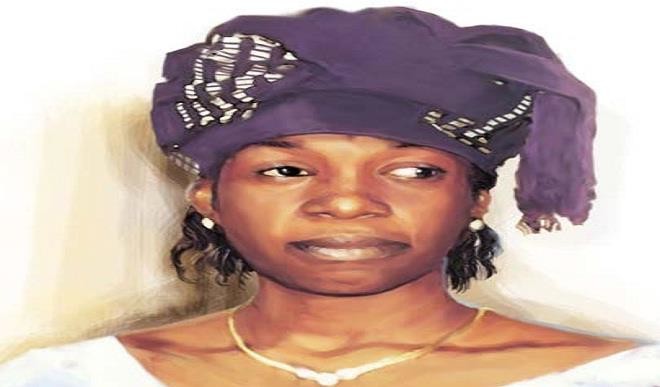Amina Hamza, humble lady you’ve never heard of
Many of us who knew late Amina Hamza (nee Adam) have failed to end mourning her, even two years after her sudden demise. She died on November 28, 2013, after spending few hours in the intensive care unit of Yusuf Dantsoho Memorial Hospital, Kaduna. When the story of her death shattered that cosy Thursday evening, […]


Many of us who knew late Amina Hamza (nee Adam) have failed to end mourning her, even two years after her sudden demise. She died on November 28, 2013, after spending few hours in the intensive care unit of Yusuf Dantsoho Memorial Hospital, Kaduna. When the story of her death shattered that cosy Thursday evening, nothing remained the same.
Although it has been said that time heals all wounds, it’s no exaggeration to say that the deep grief stemming from Amina’s bereavement seems to have no end in sight. Over time, missing her has proved too difficult to endure, let alone resist. Two uncomfortable years later, a sizeable portion of our hearts have yet to bounce back. In an attempt to keep the outpouring sorrow at bay, I have decided to boycott anything reminiscent of her – including snubbing her widower and his residence. But this behavioural remedy was entirely futile as she symbolises everything good around us.
The word ‘heroine’ is overused and often misused. The story of Amina, the precious and deeply loved wife of my eldest brother, Malam Hamza Rayyan, shows where it should be used appropriately. She epitomises the beauty of giving housewives a chance to engage in business, as she saves proceeds as bailout for the family on any rainy day, while the residue are channelled to noble causes. Thus, anyone who meets her is touched by her generosity and goodwill.
Some of the key roles she played in our extended family include acting as its unofficial goodwill ambassador as well as a PRO of sorts, serving as a worthy role model for junior sisters-in-law and a peerless mother when it comes to administering morally rich parenting skills. The three well-mannered cherubs she left behind – Aliyu, Zainab and Zarah offer excellent testimony to it.
Although she endured life’s difficulties and the loss of many loved ones including her two parents, she doesn’t only accept that as the will of God but inadvertently exhibits her incredible forbearance. Never once did her fortitude waver during hard times. She stomached every hardship with extraordinary patience and absolute trust in Allah. The enthrallment of her saintly personality drew diverse people around her. She finds it very easy to talk to everyone, big or small. Building and cultivating strong and long-term relationships was her forte, something she never shied away from accomplishing.
Amina, who died when she was just 28, was highly devoted to family matters. Apart from reading Hausa novels, there was nothing she liked more than sitting down with family members to discuss issues. I cannot remember a time when she became tired of discussion. However, she was the person you could tell your secrets to and trust that they will stay with her and not follow you back out the door and into the world.
In their entire neighbourhood, she was the most preferred person to be entrusted with money. It’s because of that the then-prospective groom, Bello Idris Kura, an acquaintance of hers, handed over a huge sum of money to her to help him procure all his nuptial articles. And to this day, she has been receiving posthumous commendation from Bello and his family because according to them, her purchases had out-valued the money given to her.
When I paid her a visit in November 2012, a day before I head for Jalingo for my three-week NYSC orientation training, she gingered up a talk with some motivational jokes. However, she counselled me wisely against getting carried away by certain social vices in the camp. And just before I left, she gave me a crisp N500 note which I graciously declined but she pressed it on me.
Phone calls from Amina were something else. She called me regularly and could speak on the phone for some time. On my matriculation day and during my first few days in the NYSC camp, she was among the first people to call me and ask about how I was coping with the new environment. She was just more than a sister-in-law, but a sister proper.
According to her soft-spoken husband, it was an extraordinary privilege for him to be her spouse. He described her as an indispensable wife. No doubt it has become a difficult task for Malam Hamza to remarry after years of being a widower. And that is why I always say something amusing to myself, that if all married women were like Amina, they would be automatically problem-free and their marriage divorce-proof.
She was described by her mother-in-law as gentle, very much a family person who would do something good for anyone. Just like every time, we pray for the repose of her gentle soul.
